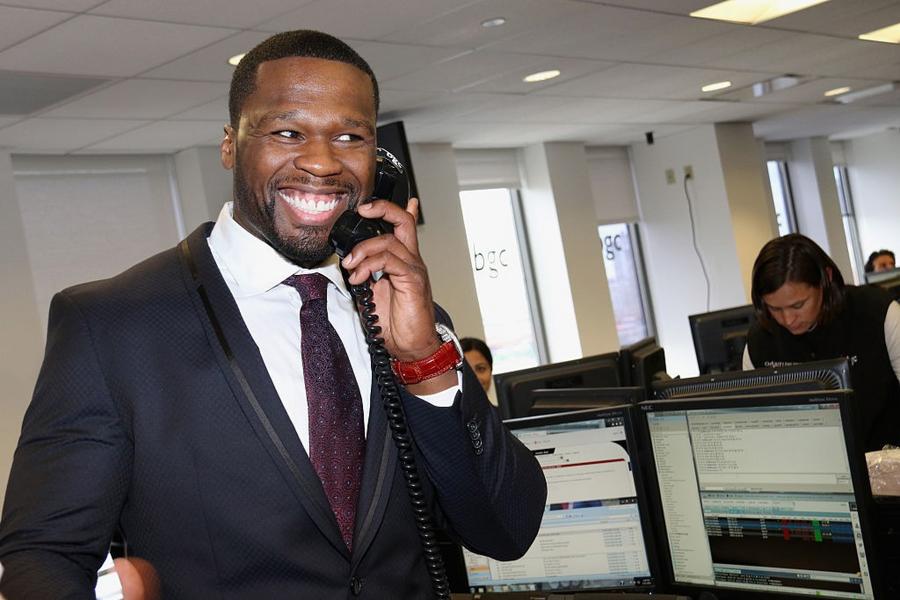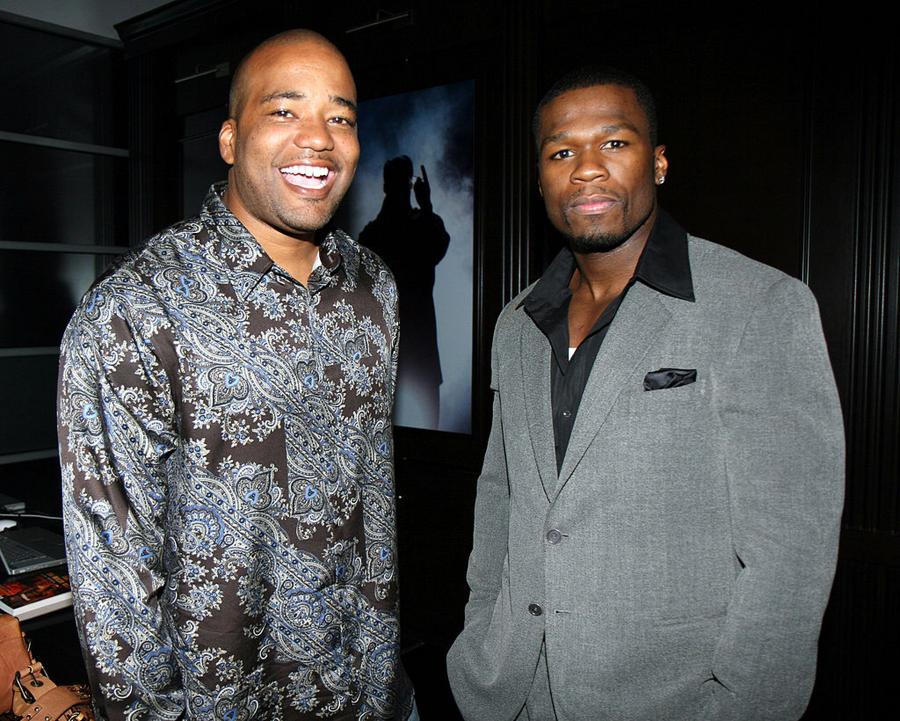On May 24, 2000, a 25-year-old aspiring rapper named Curtis "50 Cent" Jackson was shot nine times at point-blank range while sitting in the backseat of a car outside his grandmother's house. Miraculously, he survived. But as if coming within an inch of death wasn't traumatic enough, just weeks later, Columbia Records dropped him from their label and shelved his debut album.
It could have been the end of his music career before it even began. Instead, 50 Cent rebuilt his physical and mental strength, and within a few years, he became the number one rapper in the world. His debut album would go on to sell over 15 million copies worldwide and cement his place in music history.
The Breakout Album That Changed Everything
Released on March 8, 2003, "Get Rich or Die Tryin'" debuted under Shady/Aftermath/Interscope Records. Fueled by the monster single "In Da Club," the album skyrocketed to number one on the Billboard charts and stayed there for nine straight weeks. Between March and July, it sold over 5 million copies in the U.S. alone and more than 15 million globally.
But not everyone was celebrating. Just months before the release, 50 Cent's manager, Chris Lighty, and his company, Violator Management, had agreed to forfeit half of 50's music profits in order to secure his record deal. It was a desperate move, made necessary because every major label had previously rejected 50 due to his violent and controversial reputation. Violator still retained a 15% management fee, but the sacrifice lit a fire under Lighty to find new revenue streams.
The Equity-Over-Salary Strategy
Missing out on tens of millions in royalties motivated Violator to chase endorsement deals that came with serious upside. Instead of settling for flat fees, they pursued deals that included large upfront payments and equity stakes. As 50's fame exploded, so did his business empire: a clothing line, G-Unit Records, a ringtone company, a video game, a film studio, and more.
One of the biggest deals came from an unexpected place: Vitamin Water.

Janette Pellegrini/Getty Images
A Sip That Changed Everything
At the time, Rohan Oza, a veteran beverage executive who had recently left Coca-Cola, was working as the brand manager for a company called Glacéau. They owned a struggling sports drink called Vitamin Water. One day, Oza saw 50 Cent appear in a Reebok commercial — and at the end of the ad, 50 took a swig of Vitamin Water. Here's the ad:
What seemed spontaneous was anything but. 50 had been introduced to the drink by his personal trainer and genuinely loved it. But more importantly, Chris Lighty and Rohan Oza were longtime business acquaintances. Years earlier, Lighty had arranged for A Tribe Called Quest to appear in Oza's legendary "Obey Your Thirst" Sprite campaign — the first to use Black hip-hop artists to directly target urban consumers.
Lighty knew Oza would see the ad and take notice. He did.
After seeing the commercial, Rohan Oza arranged for 50 Cent and Chris Lighty to come to Vitamin Water headquarters. By chance, Vitamin Water's headquarters were located in Queens, NY, just a few blocks from where 50 Cent grew up. When the meeting was done, 50 Cent agreed to be Vitamin Water's first celebrity endorser in exchange for a $5 million fee AND an equity stake in the company.

Chris Lighty and 50 Cent (Photo by Johnny Nunez/WireImage)
Introducing Formula 50
At the time of the deal, Vitamin Water was working on a new flavor that contained 50% of the FDA's recommended daily allowance of vitamins. Naturally, it was dubbed "Formula 50." With 50 Cent as the face of the brand, the marketing machine kicked into high gear. Ads, posters, bus wraps, and radio spots popped up everywhere.
It worked. Sales exploded. Vitamin Water grew from $100 million to $355 million to $700 million in annual revenue between 2005 and 2007. By 2007, the brand controlled 30% of the U.S. sports water market.
The $4.1 Billion Coca-Cola Buyout
On May 25, 2007, Coca-Cola — Rohan Oza's former employer — acquired Glacéau for $4.1 billion in cash. According to one version of the legend (which 50 Cent happily allowed to spread for years), 50 Cent owned 10% of Vitamin Water. That would have translated into a roughly $410 million payday for Mr. Jackson. Unfortunately, it's not accurate. The true number is believed to be around 2.5%, which would have translated into around $102 million pre-tax. He would have paid around $36 million in federal taxes and $11 million in state and city taxes for a total of $47 million in taxes. That would imply 50 Cent's post-tax earnings from the Vitamin Water sale were roughly $55 million.
Perhaps not as astonishing as the long-rumored $400 million/$200 million post-tax, but still an extremely impressive payday.
The Lesson
50 Cent's Vitamin Water deal remains one of the most iconic and profitable endorsement deals in entertainment history. All because he endorsed a product he genuinely loved — and had the business foresight to take equity instead of just cash.
Get rich or die tryin'? 50 Cent did both — and then some.
/2017/07/50thumb.jpg)
/2023/04/50-cent.jpg)
/2014/04/GettyImages-107911575.jpg)
/2015/04/50.jpg)
/2016/07/50cent.jpg)
/2015/07/50-Cent.jpg)
/2018/03/GettyImages-821622848.jpg)
:strip_exif()/2015/09/GettyImages-476575299.jpg)
/2020/04/Megan-Fox.jpg)
/2019/11/GettyImages-1094653148.jpg)
/2019/10/denzel-washington-1.jpg)
/2009/09/Brad-Pitt.jpg)
/2020/02/Angelina-Jolie.png)
/2017/02/GettyImages-528215436.jpg)
/2020/01/lopez3.jpg)
/2009/09/Jennifer-Aniston.jpg)
/2019/04/rr.jpg)
/2020/06/taylor.png)
/2009/09/Cristiano-Ronaldo.jpg)
:strip_exif()/2009/09/P-Diddy.jpg)
/2009/11/George-Clooney.jpg)